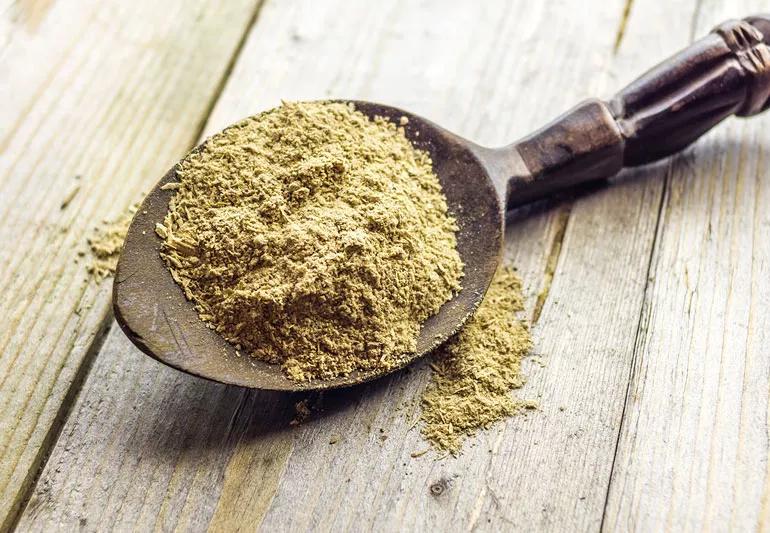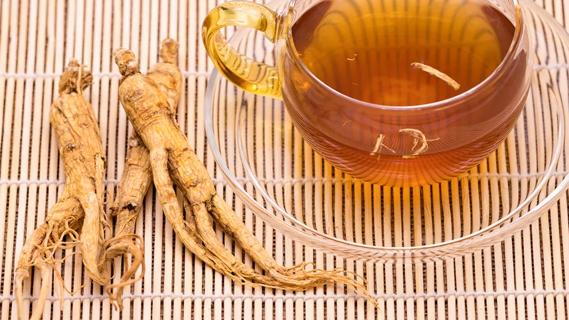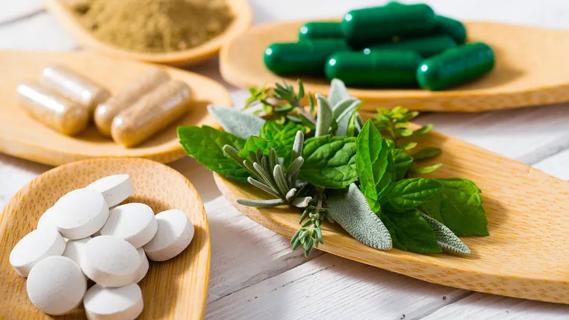This herbal supplement comes with health risks, especially if you take antidepressants

If you’ve heard kava referred to as “nature’s Xanax,” you might be feeling eager to get your hands on this all-natural mood relaxer. But before you head to your closest kava bar for a cuppa, it’s important to know exactly what it is and exactly what risks it brings.
Advertisement
Cleveland Clinic is a non-profit academic medical center. Advertising on our site helps support our mission. We do not endorse non-Cleveland Clinic products or services. Policy
Family physician Matthew Goldman, MD, shares what you need to know about this supplement — including why “natural” doesn’t necessarily equal safe.
Kava is an extract that comes from a shrub called Piper methysticum, which is native to Micronesia and Polynesia.
“The root is emulsified to make an intoxicating beverage,” Dr. Goldman explains. “It can also be dried and used as a dietary supplement to reduce stress and anxiety.”
Kava has long been used in religious ceremonies in the South Pacific, but in recent years, it’s also become popular in the United States, where “kava bars” serve it instead of (or alongside) coffee and tea. It’s often mixed with water or coconut milk and traditionally served cold.
Depending on where you live, you may hear kava called:
So, what’s the allure? “Kava is consumed for its sedating effects,” Dr. Goldman says. In other words, kava makes you feel super chill. But at what cost?
The active ingredients in kava are kavalactones (or kavapyrones), and researchers are still trying to figure out exactly what they do to the brain and body. But there’s plenty they already know — like that kava impacts the way your brain receives certain signals.
Advertisement
“The 15 active ingredients have all been identified,” Dr. Goldman says, “and they’re all known to have psychoactive properties.”
In the U.S., kava is touted as an alternative to alcohol — a way to mellow out minus the drinking. That’s because, like alcohol, kava is a depressant, meaning it slows down your central nervous system.
Both alcohol and kava enhance the effects of gamma-aminobutyric acid, or GABA, which is one of the chemicals that send messages to your brain. GABA is an inhibitory neurotransmitter, which means it blocks some of those messages from getting to your brain. This can:
“Research suggests that the active properties in kava modulate GABA activity,” Dr. Goldman states, “and that they also inhibit noradrenaline and dopamine reuptake.”
Those last two things mean that kava works similarly to a class of medications called norepinephrine and dopamine reuptake inhibitors (NDRIs), which are used to treat depression. Noradrenaline, or norepinephrine, is a chemical that helps you feel awake and alert, while dopamine is your body’s “feel-good” hormone.
If you’re feeling stressed or anxious, all of that might sound pretty appealing — but not so fast. There’s more you should know before you head to the nearest kava bar.
Kava is heavily regulated in the United Kingdom, Australia, Canada and beyond. And though it’s legal in the U.S., that doesn’t necessarily mean it’s safe.
Kava comes with significant risks, especially if you’re taking medication to treat depression and/or anxiety, or if you have other medical conditions.
Dr. Goldman explains some of the risks associated with kava.
Because kava works similarly to alcohol and NDRIs, it’s dangerous to combine them. You shouldn’t take kava with any of the following:
Advertisement
Kava may interact with other substances, too. Before trying kava, be sure to tell your healthcare provider about any other medication or supplements you’re taking.
Some of the components in kava are known to be hepatotoxic, or toxic to the liver.
Surveys of Australian Aboriginal communities, where kava is heavily used, haven’t found any evidence of long-term liver damage there. But Europe and the United States have both reported cases of kava-induced liver issues, which is what led the U.K. to ban the substance in 2003.
“There have been numerous reports of severe liver toxicity and/or liver failure from both Europe and the U.S., occurring within weeks and up to two years after ingesting kava,” Dr. Goldman states.
There isn’t much data about this side effect, but in at least one example, kava has been linked to tremors (parkinsonism). Your risk is thought to be higher if parkinsonism already runs in your family.
Some of the other side effects that can come with kava use include:
The World Health Organization (WHO) says these side effects are likely to reverse themselves once you stop using kava.
Advertisement
Just because kava is legal doesn’t mean it’s a good idea for you to take it — especially if you have a medical condition that could be made worse by it.
“You should always speak to your healthcare provider before taking kava,” Dr. Goldman stresses, “especially if you have an underlying condition.” This includes:
As with any herbal supplement, one of the biggest risks of taking kava is that there’s no real way to verify what you’re getting or how safe it is. The U.S. Food and Drug Administration (FDA) doesn’t regulate kava products, which means you can’t know for sure how much of it you’re consuming, where it came from or what type it is.
This is especially important when it comes to kava because there are more than 200 types of kava plants, and some varieties of the plant are thought to be more psychoactive (and less safe) than others.
In the U.S., kava bars also often serve drinks made with kratom, a dangerous supplement associated with severe side effects and even the risk of death.
Kava may sound like a tempting way to try to tame your anxiety, but other options are proven to be safer and more medically sound.
Advertisement
Depending on your healthcare provider’s recommendations, those options may include psychotherapy and/or medication, not to mention DIY stress management options like mindfulness and meditation.
“If you’re looking for a complementary or alternative treatment for anxiety, there are many other options,” Dr. Goldman says. “Once again, I strongly suggest speaking to your healthcare provider to learn more about other options and whether or not they would be safe for you.”
Learn more about our editorial process.
Advertisement

Until there’s more research on it, this plant’s greatest claim to fame is its deliciousness

This adaptogenic herb can help your body respond to stress — but there’s not enough evidence to prove other claims about its benefits

This herbal medicine is said to reduce stress, ease pain and promote overall well-being, but more research is needed

Far more research is needed to support the many touted health claims

Research suggests the effect of the supplement, particularly for prostate health, may not deliver believed benefits

Two types of ginseng work in different ways to help improve energy, immunity and heart health

Besides questionable effectiveness, herbal supplements aren’t safe for everyone

Natural doesn’t mean they’re safe or effective

Wearing a scarf, adjusting your outdoor activities and following your asthma treatment plan can help limit breathing problems

Your diet in the weeks, days and hours ahead of your race can power you to the finish line

When someone guilt trips you, they’re using emotionally manipulative behavior to try to get you to act a certain way